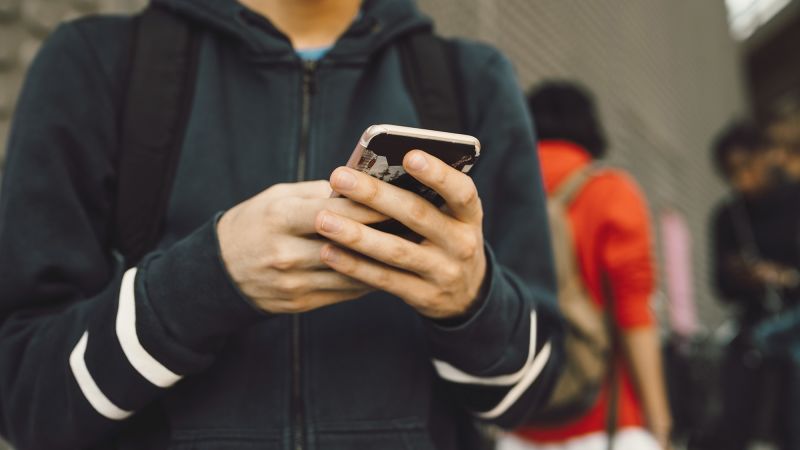Editor’s Note: If you are in the US and you or a loved one have contemplated suicide, call the National Suicide and Crisis Lifeline at 988 or 1-800-273-TALK (8255) to connect with a trained counselor. Outside the US, a worldwide directory of resources and international hotlines is provided by the International Association for Suicide Prevention, and you can turn to Befrienders Worldwide.
Jaime Puerta’s 16-year-old son Daniel died four years ago after taking a counterfeit oxycodone pill made with pure fentanyl, the illicit opioid drug, that he purchased from a dealer he found on Snapchat. In 2022, Puerta sued Snapchat in a wrongful death lawsuit. At the time, his lawsuit was one of the first to accuse social media of posing a danger to children’s health.
Now there are hundreds of such lawsuits against social media platforms, alleging teenagers across the country have been harmed from exposure to social media, according to Matthew Bergman, the founder of the Social Media Victims Law Center, from where many of these lawsuits have been filed. In some of the cases, families allege their children used social media to buy drugs; in other cases, parents say their teens saw dangerous content and harmed themselves. There is a range of harms and heartbreak alleged in the filings.
Meta, TikTok and Snapchat outline on their websites that they prohibit content that promotes self-harm and the sales of prescription and opioid drugs. The platforms also have tools that allow parents to set time limits for their teens on the apps, verify user ages and restrict who they can message.
“We want to reassure every parent that we have their interests at heart in the work we’re doing to help provide teens with safe experiences online,” a Meta spokesperson told CNN. “These are complex issues but we will continue working with experts and listening to parents to develop new tools, features and policies that are effective and meet the needs of teens and their families.”
The social media companies filed motions to dismiss some of the cases under the First Amendment and Section 230, which states that tech companies cannot be held liable for some of the content that users post to their platforms. However, some cases, including with Puerta’s lawsuit, have already been approved to move forward in the court of law. All cases are still pending.
Snap did not comment on the status of some of the lawsuits but directed CNN to its community guides. TikTok did not respond to a request for comment.
But with little movement in the courts or from lawmakers and drawn-out battles with regulators against Big Tech, some of those grieving families are looking elsewhere for progress. Instead of waiting for others to act, they are now teaming up with nonprofits, starting their own organizations and connecting with each other to try to save children across the country.
“All I am is a bereaved father who wants to make sure this doesn’t keep happening,” Puerta told CNN. “My son made a mistake [on social media] but it shouldn’t have cost him his life.”
Soon after Daniel died, Puerta founded an organization called VOID – Victims of Illicit Drugs – which offers parents and educators resources about the dangers of fentanyl-laced drugs and social media.
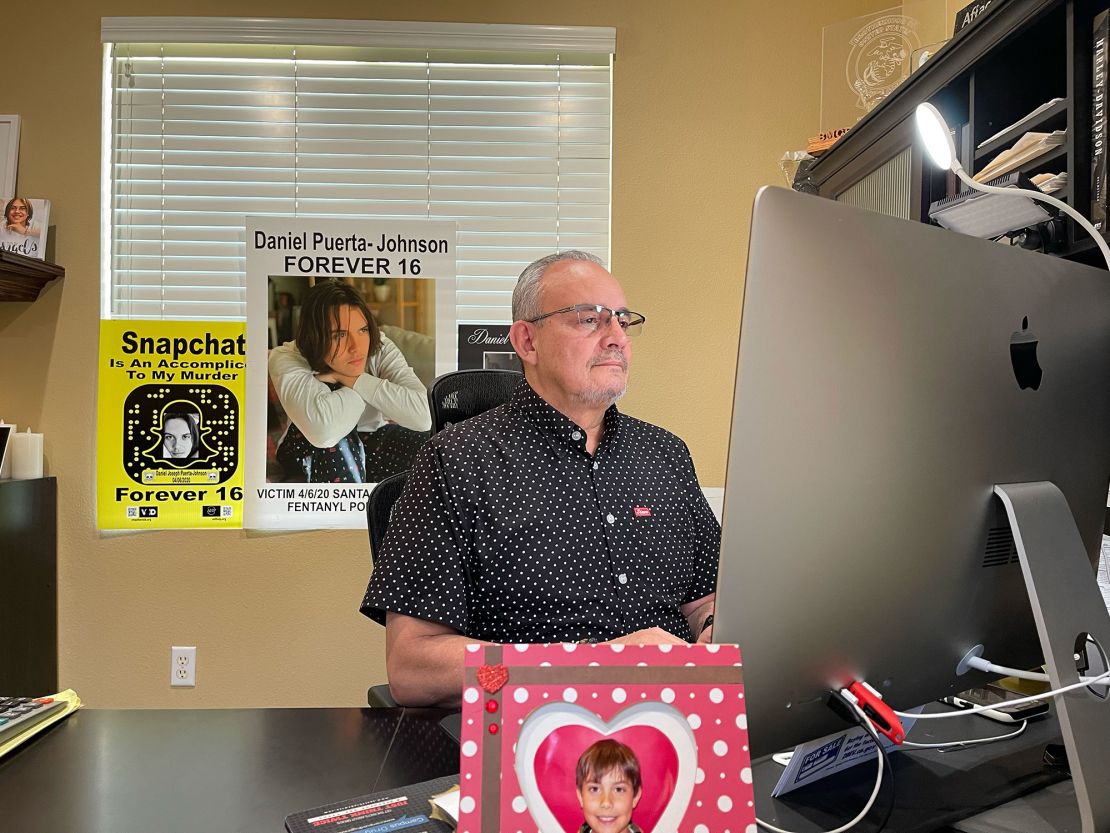
He said he has met with the Los Angeles police department, the Central Intelligence Agency (CIA), Homeland Security and other government agencies to address the topic. He also hosts student assemblies at high schools where he screens a short film that follows four families, including his own, who lost children to fentanyl-laced drugs purchased on social media platforms.
According to the Centers for Disease Control and Prevention (CDC), nearly 80,000 people died from opioid overdoses in the US in 2022, many of which came from fentanyl and other synthetic drugs. Some drug traffickers advertise on social media platforms often via 24-hour disappearing posts, along with code words and emojis to evade law enforcement and platform algorithms, according to the Drug Enforcement Administration.
Federal prosecutors are reportedly investigating Meta for its role in the sale of illicit drugs on Facebook and Instagram, according to a Wall Street Journal report published last month. In a response to the report, the company told CNN it proactively cooperates with law enforcement authorities to help combat the sale and distribution of illicit drugs, which is against its policies.
“The government wasn’t being proactive enough, so I knew I had to be,” Puerta told CNN. “The stigma of overdose and drugs makes you think that person must have been a drug addict or used too much. But what most people don’t understand is that fentanyl is taking the lives of non-addicted first-time users.”
The motivation to reach lawmakers is common among families who say their children’s lives were lost due to social media. Gail Flatt, who sued Snapchat and Meta in 2022 alleging her 14-year-old daughter Sarah’s “addiction” to the platforms led to sleep deprivation, anxiety and ultimately death by suicide in 2019, has been meeting with lawmakers over what she describes as problems with the sites’ algorithms.
The lawsuit, which is pending in a Northern District of California Court, states Sarah constantly checked Snapchat and Instagram and fell down “rabbit holes” that ultimately led her to thoughts of suicide and self-injury.
Flatt recently met with Republican Sen. Marsha Blackburn from Tennessee to support the development of the bipartisan Kids Online Safety Act, which would give kids more online protections, such as opting out of algorithmic recommendations and ensuring higher privacy settings for young users. She was also invited by Sen. Blackburn to attend President Biden’s State of the Union address last month, in which he discussed the need to minimize the risks of social media for kids.
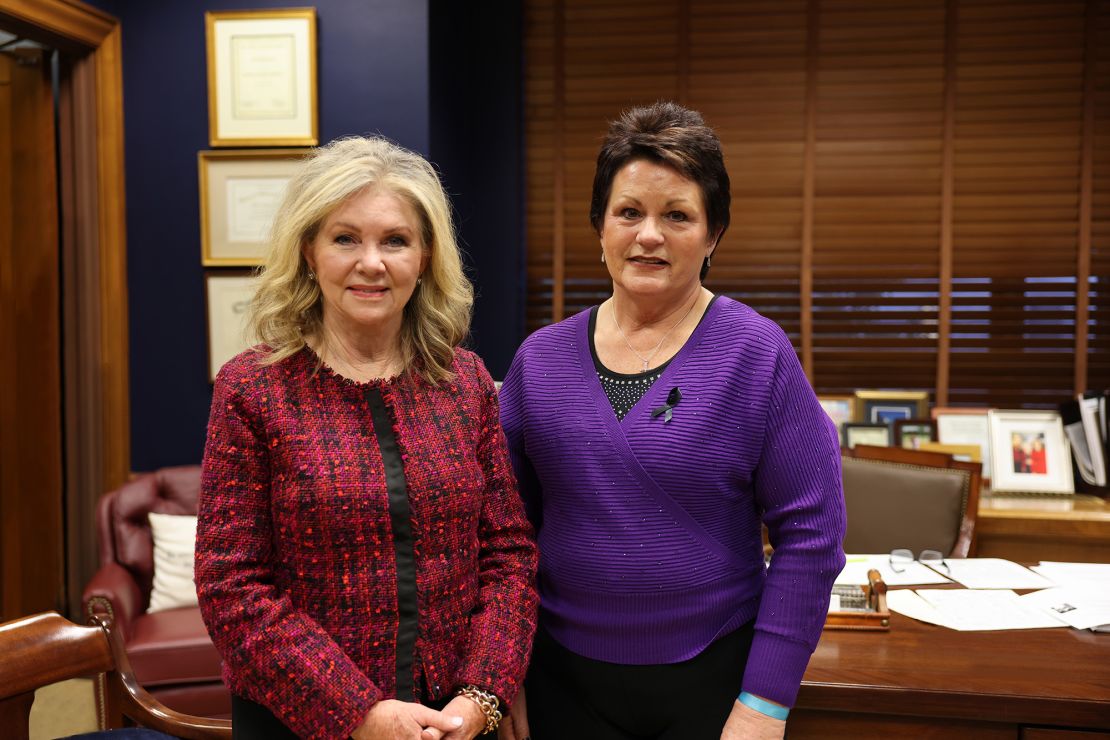
And when Meta CEO Mark Zuckerberg apologized to the families who’ve suffered because of his platform during a recent congressional hearing, Flatt was among the parents who held up pictures of their deceased children as he spoke.
“I’m trying to help save other children’s lives,” said Flatt, noting she wants her daughter’s face to serve as a warning that more children could be hurt until changes are made.
“I want companies to know, as a mother, what my son went through with depression, comparing himself to others and doing the challenges he saw on social media that were exposed to him by the algorithms,” she told CNN.
Norma Nazario, whose 15-year-old son Zackery died last year in a New York subway surfing accident after he found videos of the trend on social media, said she feels similarly. When New York City Mayor Eric Adams recently announced the city is suing five social media companies, alleging their platforms’ designs exploit young users’ mental health and cost New York $100 million in related health programs and services each year, Nazario stood next to him during the press conference.
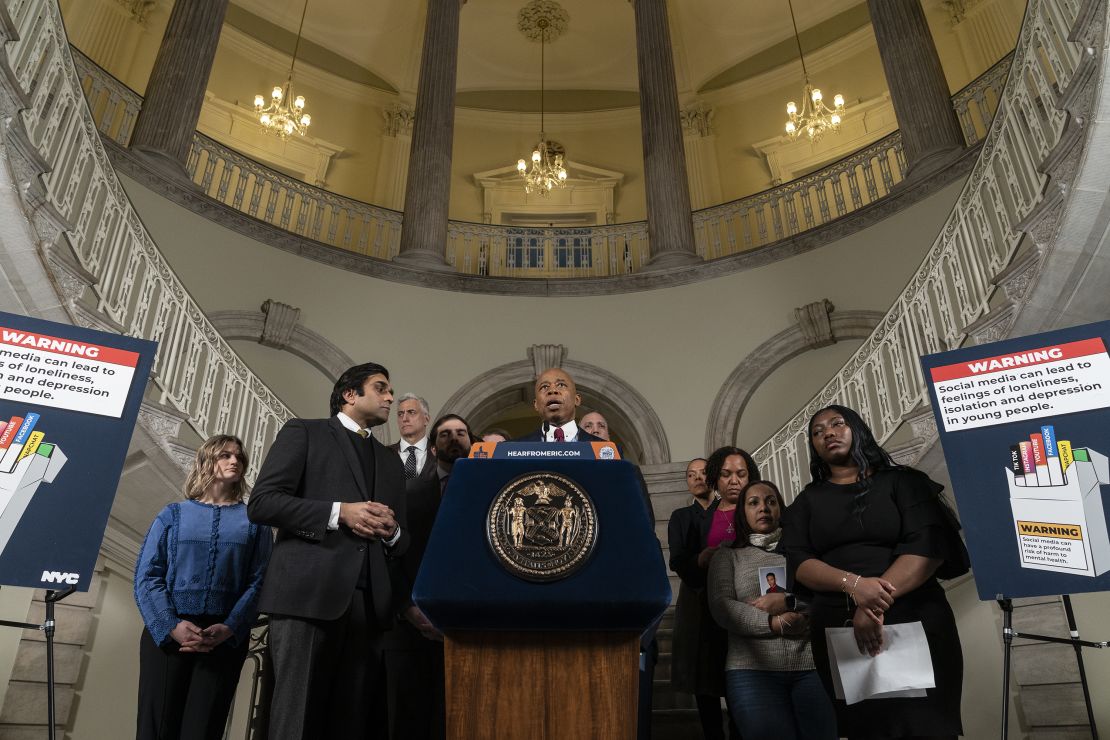
She has a wrongful death lawsuit pending against TikTok, its parent company ByteDance and Meta, which alleges the platforms’ algorithms were responsible for what the lawsuit describes as her son’s social media addiction. Next, she said she wants to work with lawmakers to help increase the age requirement to access social media sites.
Last month, Florida Republican Governor Ron DeSantis signed a bill into law banning children under age 14 from having their own social media accounts. (Fourteen and 15-year-olds will be allowed to have accounts with parental consent).
A mother featured in the same film as Jaime Puerta – Amy Neville, whose 14-year-old son Alexander died after taking a pure fentanyl pill she believes was purchased on Snapchat in 2020 – also travels across the US to show the documentary to students. She screens several other films she’s been involved with too, including one that examines the reported drug market Snapchat has made available to kids. Neville helped fund the production for one of the films.
“I do this because it keeps me connected to Alexander and lets me talk about him,” she said. “It’s an overwhelming thought that it could happen to someone else. If I can do something to help them, I will.”
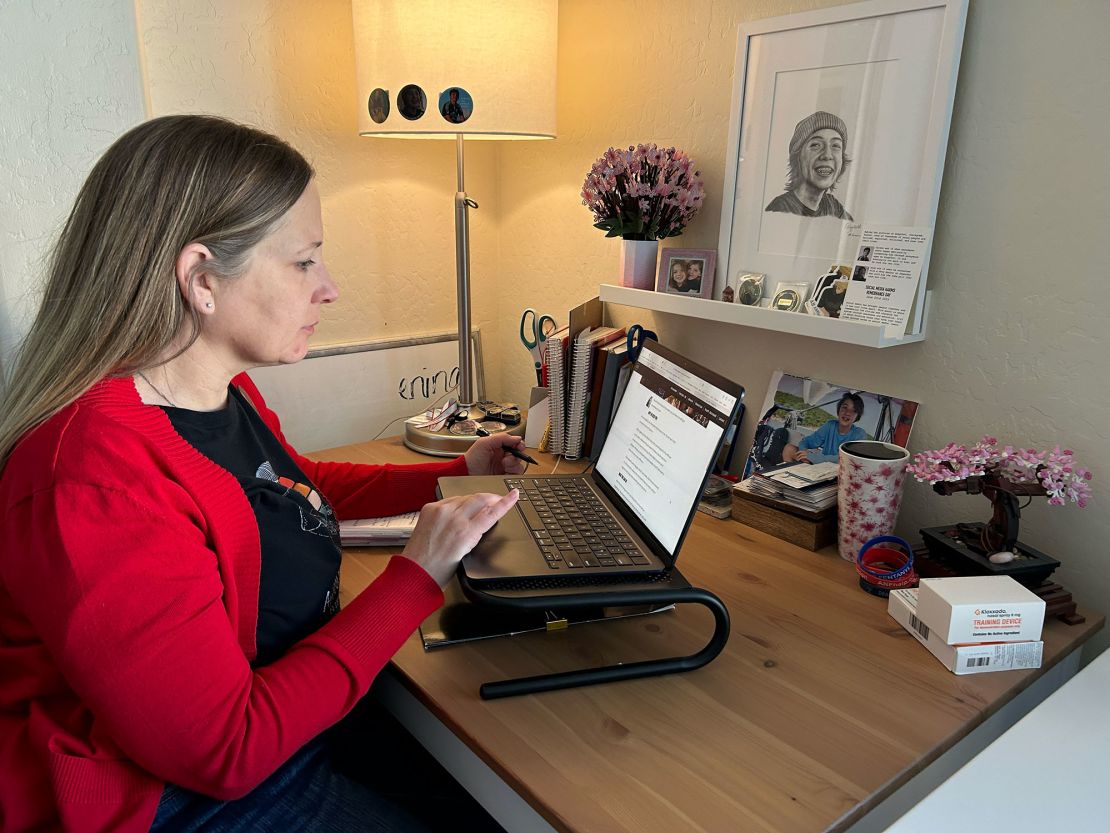
She also founded the Alexander Neville Foundation, which offers resources about the problem, and started a course called the Parent Connections Academy in her local community to empower parents with more information about fentanyl. Neville said she has submitted a proposal to Democratic Sen. Amy Klobuchar of Minnesota to create a new national holiday in June called Social Media Victims Remembrance Day. Sen. Klobuchar did not immediately respond to a request for comment.
Families who’ve been shaken because of their children’s use of social media are coming together to find a sense of community, too.
Sabine Polak, a mother from Phoenixville, Pennsylvania, first spoke publicly about how her daughter struggled with social media addiction back in 2021. In an interview with CNN at the time, she revealed her 14-year-old daughter was working through depression and had contemplated suicide. The teen ultimately received treatment in a rehab institution, after an intervention with her school counselor, and has made great progress, according to Polak.
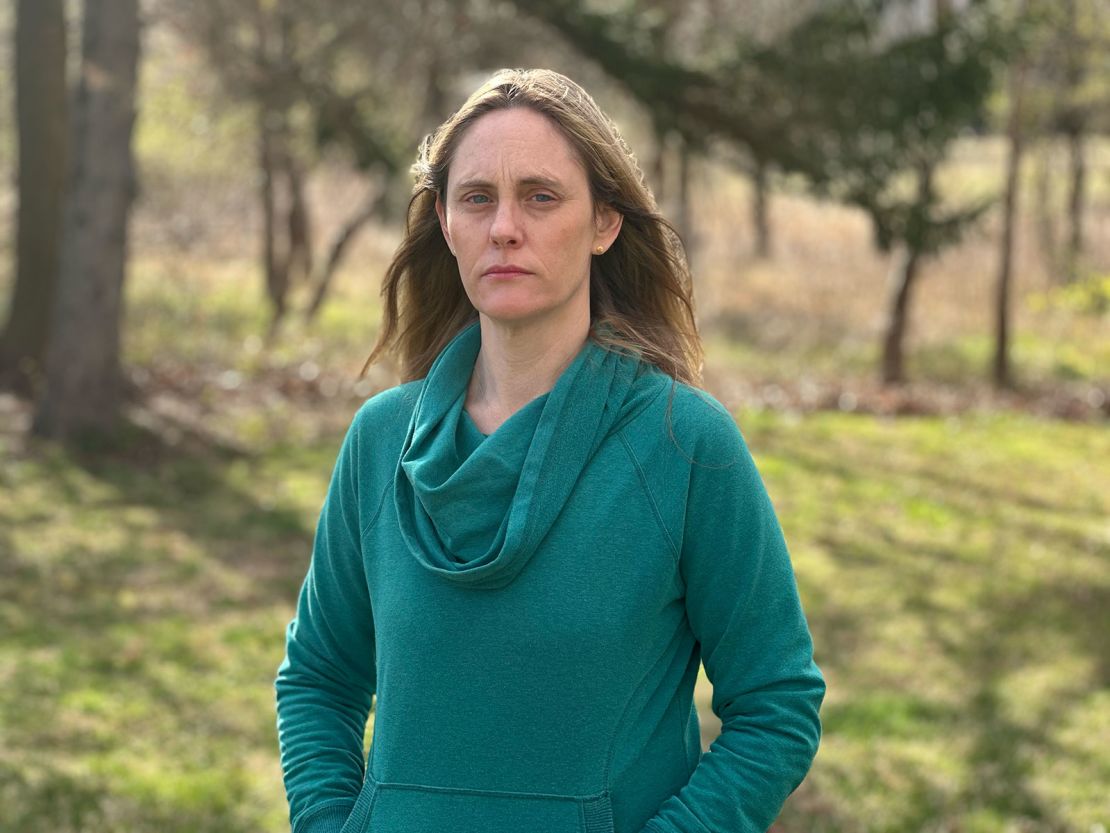
But that period changed the trajectory of Polak’s life. When another mother in her town, Mileva Repasky, read about Polak’s story on CNN, she reached out; her son also struggled with social media addiction.
“It brought her to tears because she was going through something so eerily similar with her teenage son, even with that call from the counselor out of nowhere,” Polak said. “We both couldn’t believe that not only were we in the same area but our kids were in the same school district.”
They eventually launched a nonprofit called the Phone-Free Schools Movement, which meets with administrators to help schools restrict or ban phone use during the school day as a way for students to disconnect, focus on classwork and cut down on cyberbullying, cheating and other distractions.
“We are receiving a lot of messages from parents wanting to start a movement in their own schools, and even administrators asking for resources on how to implement a phone-free policy,” Polak said.
She said connecting with Repasky gave her motivation to draw more attention to a crisis that not everyone is willing to discuss.
But it’s not just parents who are advocating for change and finding support in their local communities. Nineteen-year-old Cece Nelter from Independence, Kentucky – who filed a lawsuit in July 2022 against Meta alleging Instagram pushed her toward harmful content on the platform without her consent – joined a student-led discussion group with neighboring high schools to talk about the damage social media can inflict on teenagers’ mental health.

At age 12, Nelter said she signed up for Instagram as a way to stay connected with her mother while she stayed part-time at her father’s home. The two started sharing recipes, but over time, she says, Instagram pushed her toward posts about anorexia and bulimia. After the platform connected her with users, groups, videos and posts with tips and tricks on how to hide the fact that she was not eating, she went into heart failure and was hospitalized for anorexia nervosa, according to the lawsuit.
“The [discussion] group gave me the biggest sense of perspective,” said Nelter, who became a group leader. “You talk to different kids that you may sit next to in class but learn a lot about them, their mental health and what’s affecting them. It made me feel less alone and … like I want to do more.”
Meanwhile, Donna and Chris Dawley – who claimed in a 2022 lawsuit that social media sites played a significant role in the decision of their 17-year-old son CJ to end his life – said they initially didn’t know other families who were facing the same hardships. “Now we know so many,” Donna Dawley told CNN.
Over the last two years, the Dawleys have spoken at various conferences and events to share their story, including at the Archewell Foundation Parents’ Summit on World Health Day. They are also part of a network of families affiliated with a charitable organization, founded by Prince Harry and Meghan Markle, that provides counselors and resources to parents who have experienced tragic loss connected to their child’s social media use.
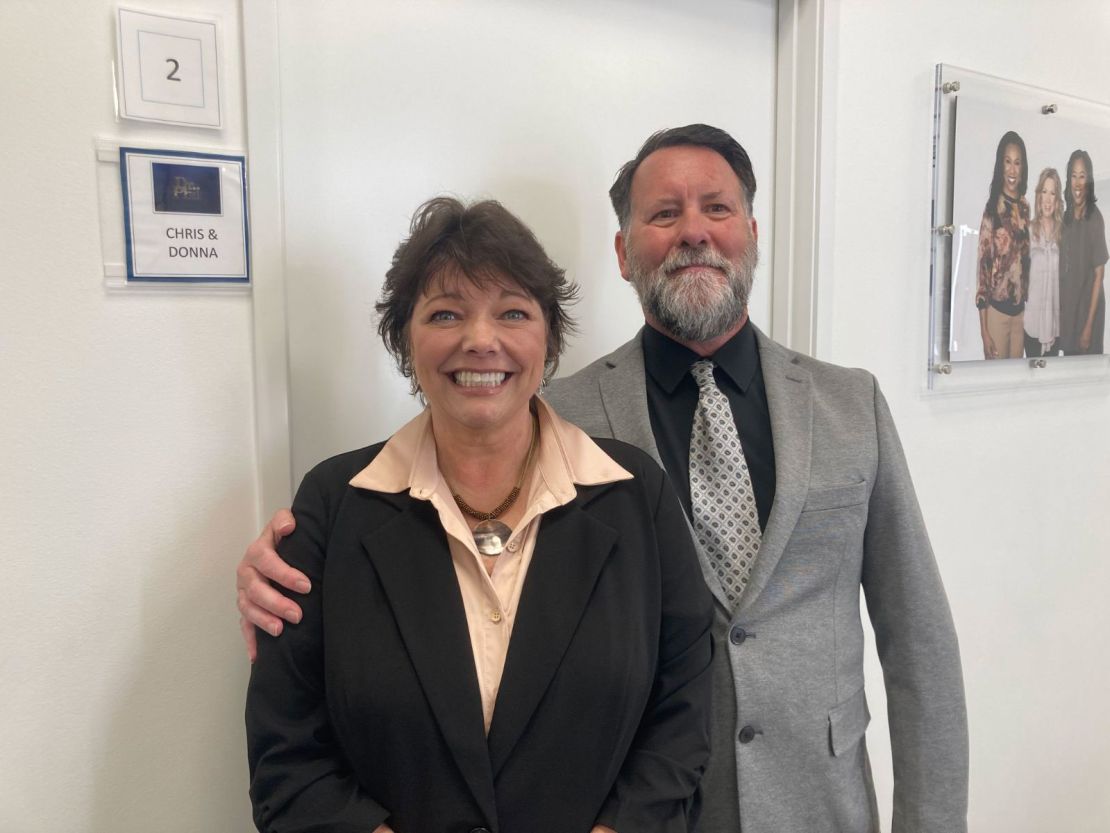
“We are so grateful to have found other families speaking out about what’s happening,” Donna Dawley said. “It’s like having an extended family. We always text each other to see if someone is having a bad day and send support.”
But she said it still hurts to hear new stories of children losing their lives to the dangers associated with social media.
“We’ve been talking so much about this, but it makes me feel like we haven’t done enough, even though I know we can’t do everything,” she said. “If social media companies would just fix these algorithms, there wouldn’t be more grieving parents.”
Read the full article here





